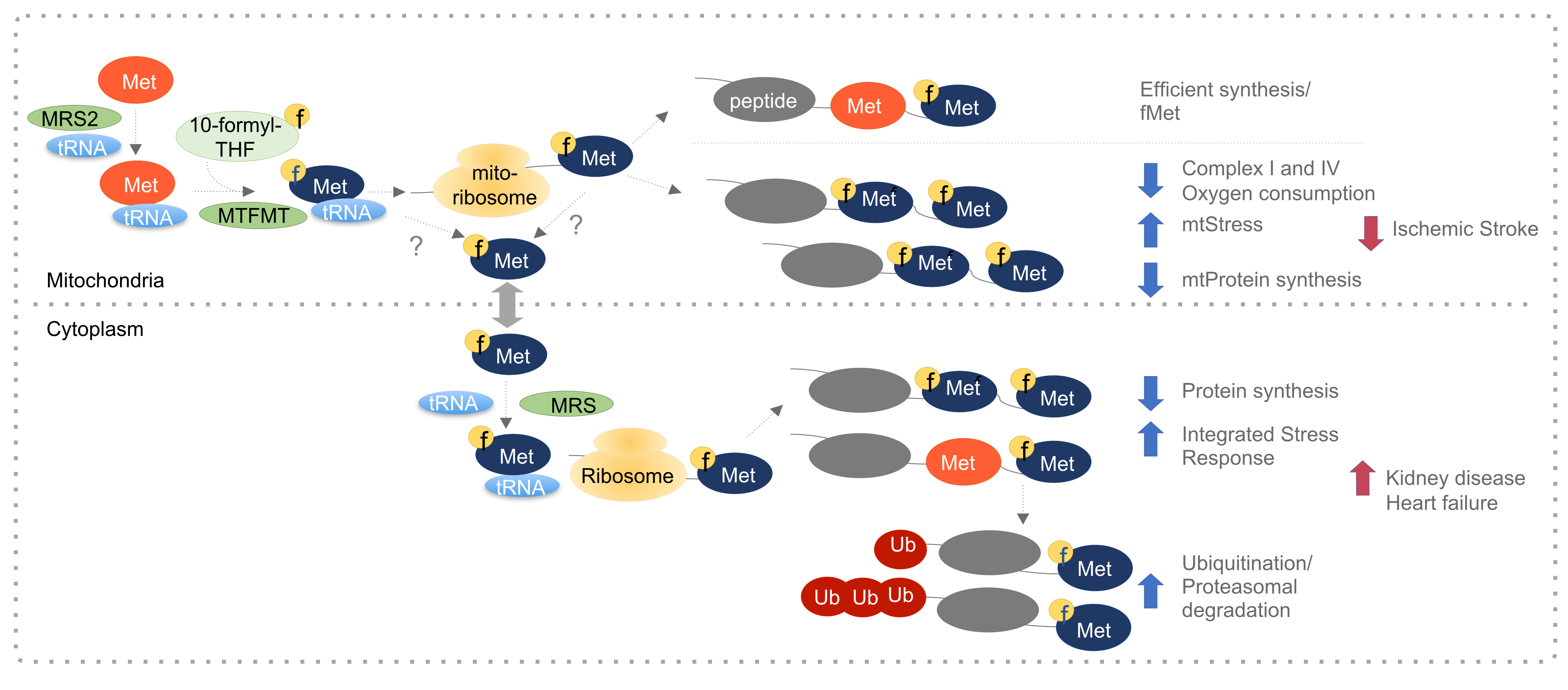
A new publication in Nature Medicine by Dr. Aurora Gómez-Durán, a researcher recently incorporated at the Margarita Salas Center for Biological Research (CSIC), shows that the mitochondrial DNA (mtDNA) variants that define mitochondrial haplogroups modify the levels of N-formylmethionine (fMet). In addition, variations in the levels of this metabolite, necessary to initiate protein synthesis within the mitochondria, have been related to different pathologies associated with age, mainly cardiovascular.
Mitochondria are organelles that are found in the cells of all complex organisms. They perform a number of vital biological functions, including the production of around 90 percent of the energy that cells need to function. Mitochondria are unique in that they have their own genetic code, known as mitochondrial DNA (mtDNA), which is distinct from the DNA contained in the nucleus of every cell in an organism’s body. mtDNA is passed on from mother to child. Many common diseases, such as Parkinson's, diabetes, heart disease, and depression, are influenced by mutations in mtDNA.
Over time, the accumulation of mutations in mtDNA leads to distinct lineages in the population, known as haplogroups, which confer particular traits. Previous research has shown that haplogroup Uk, found in 10 percent of the European population, is protective against diseases such as Parkinson’s Disease and ischemic stroke (IS).
Cai & Gómez-Durán et al. have analyzed in this new study two large-scale datasets, looking for associations between genetic variants in mtDNA and thousands of common molecular traits such as blood cell counts, plasma proteins, and metabolite levels, in order to understand the molecular mechanisms behind mtDNA associations with diseases.
The analysis of the INTERVAL dataset, including the information of up to 16,000 participants, allowed researchers to identify significant associations between levels of fMet and mtDNA variants in haplogroups Uk and H3. The team verified these associations using cellular models and showed that the variants in Haplogroup Uk modulate protein synthesis and degradation in both the mitochondria and cytoplasm through the levels of fMet, and this affects cellular processes beyond mitochondrial bioenergetics. By studying a cohort of ischemic stroke patients, the team described that fMet levels were lower compared to those in a healthy control group suggesting that part of the protective effect of mtDNA haplogroup Uk may be attributed to reduced protein clearance mediated by fMet.
Additionally, they analyzed the data from EPIC-Norfolk, a study that tracked the health of participants over a 20-year period, in order to determine whether differences in fMet between individuals were associated with a wider range of late-onset diseases. In contrast to ischemic stroke, higher fMet levels were associated with an increased risk of illnesses, such as kidney disease and heart failure.
The study shows the potential of fMet as a biomarker to better predict an individual’s risk of developing a wide range of common diseases and opens the path to the search for other significant links between the mtDNA variants and other genetic traits associated with them. Moreover, mtDNA should be carefully considered when performing diagnoses and delivering treatment for age-associated diseases.
The work has been developed by the Welcome Sanger Institute, the University of Cambridge, EMBL’s European Bioinformatics Institute (EMBL-EBI), and their collaborators.
Reference: Mitochondrial DNA variants modulate N-formylmethionine, proteostasis and risk of late- onset human diseases. N. Cai*, A. Gomez-Duran*, E. Yonova-Doing, K. Kundu, A. I. Burgess, Z. J. Golder, C. Calabrese, M. J. Bonder, M. Camacho, R. A. Lawson, L. Li, C. H. Williams-Gray, ICICLE-PD Study Group, E. Di Angelantonio, D. J. Roberts, N. A. Watkins, W. H. Ouwehand, A. S. Butterworth, I. D. Stewart, M. Pietzner, N. J. Wareham, C. Langenberg, J. Danesh, K. Walter, P. M. Rothwell, J. M. M. Howson, O. Stegle*, P. F. Chinnery*, N. Soranzo*. (2021) Nature medicine. https://www.nature.com/articles/s41591-021-01441-3.pdf
More information:
Welcome Sanger Institute Press Release: link.
La Voz de Galicia Press Release (in Spanish): link.

